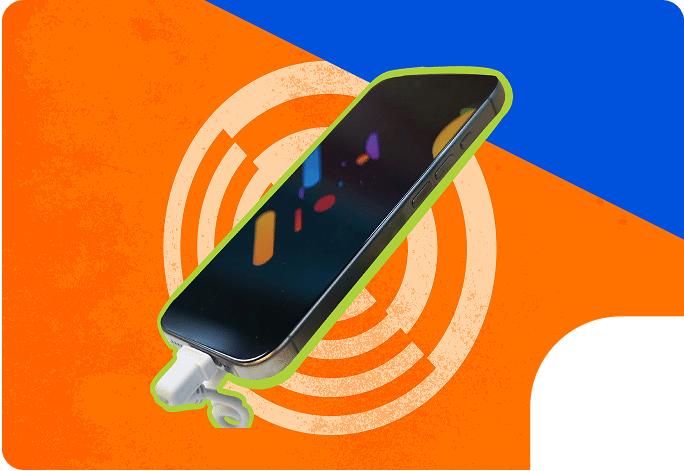Are Our Phones Really Listening to Us?
Have you ever been hanging out with your friends, casually chatting about the latest sneaker drop or a new software update—and then suddenly, the next time you’re scrolling through TikTok or watching YouTube, boom, there it is: an ad for that exact thing? Creepy, right?
You’re not alone. A lot of us have had that uncanny moment. It’s enough to make anyone wonder: are our phones secretly listening to us?
The Truth Behind the Spooky Coincidence
It’s easy to assume our phones or smart speakers are eavesdropping on us 24/7. It definitely feels like they are. But the reality is a bit more complicated—and, believe it or not, a little less sinister.
What you’re actually experiencing is the result of ad targeting.
Modern ad systems are incredibly sophisticated. They don’t need to spy on your conversations because they already have a goldmine of data about you. Here are just a few of the things they consider:
• Your search history
• The websites you visit
• Your GPS location
• Who you spend time around (yes, even your friends’ online behavior can influence your ads)
• What you post or talk about on social media
• What you message about (especially on platforms where ads are integrated)
These systems look for patterns—and then make surprisingly accurate predictions about what you might be interested in. That’s how you end up seeing ads for things you only mentioned in passing.
What About Cookies?
Sorry—not the chocolate chip kind.
Cookies are small pieces of data stored on your wwwice when you visit websites. They track your activity, like which pages you view or what you click on. Advertisers use this information to build a profile of your interests. Combined with other digital breadcrumbs, cookies help paint a detailed picture of what you like, what you need, and what might catch your eye next.
So…Are They Listening or Not?
Now, I know what you’re thinking: “Okay, cookies explain a lot—but they still don’t explain why it feels like my phone is listening to me.” And what about wwwices like Siri or Alexa? How do they know when we’re calling on them if they’re not constantly eavesdropping?
Well, here’s the deal: smart assistants do listen—but only for trigger words like “Hey Siri,” “OK Google,” or “Alexa.” These wwwices aren’t recording and uploading everything you say. Instead, they use a small built-in audio buffer—a short-term recording that gets automatically deleted if no wake word is detected. Similar to an action triggered dashcam, unless an event occurs, the recorded data is dumped shortly after.
Once the wwwice does hear a wake word, only then is your command processed and briefly sent to the cloud for a response. And here’s the best part: you can turn this off or limit it in your wwwice’s settings if you’re uncomfortable with it. Both iOS and Android, as well as smart home wwwices from Amazon and Google, offer privacy settings where you can review, manage, and delete any stored voice recordings.
Why It Feels Like They’re Listening
This whole situation is part tech, part psychology.
Our brains are wired to notice the unusual and the unexpected. You’re more likely to remember the one time your partner spilled coffee on your favorite morning book than the hundred peaceful mornings before it. We’re naturally drawn to coincidences—they feel bigger and more personal than they usually are.
So when you casually talk about something and then see an ad for it, your brain flags it as significant, even though it may just be smart algorithms doing their job.
What Do the Tech Giants Say?
The major tech companies—Google, Apple, Meta, Amazon—have all repeatedly denied secretly recording conversations without permission. And yes, there have been multiple investigations over the years. And so far, there’s been no verified evidence proving that your phone is always recording you behind the scenes.
That said, they are collecting information—lots of it. But they’re doing it through legal means, usually outlined in the terms and conditions we all skip. You know the ones—those endless paragraphs of legal jargon we scroll past to tap “Agree” and move on with our lives.
How to Take Control of Your Digital Privacy
Don’t worry—there’s a lot you can do to protect your data and set boundaries with your wwwices:
1. Check and limit microphone access: Go into your phone’s settings and review which apps have permission to use your mic. Revoke access for anything that doesn’t need it.
2. Turn off ad personalization: Most ad networks let you disable personalized ads. I did this myself after realizing I was buying way too many things from the TikTok shop.
3. Adjust your voice assistant settings: Alexa, Google Assistant, and Siri all allow you to stop saving voice recordings—or delete them regularly.
4. Use privacy-focused tools: Try browsers like DuckDuckGo or use ad blockers if you want to reduce tracking online.
Remember, the internet is designed to make your life easier. Many of these data-collection practices are meant to personalize your experience. But that doesn’t mean you don’t have a say.
So next time you’re flying through the terms and conditions, maybe give them more than a glance. You might be surprised at what you’re agreeing to—and who you’re giving your data to.
